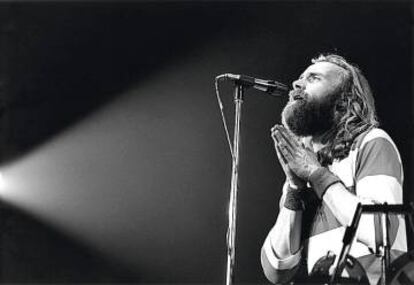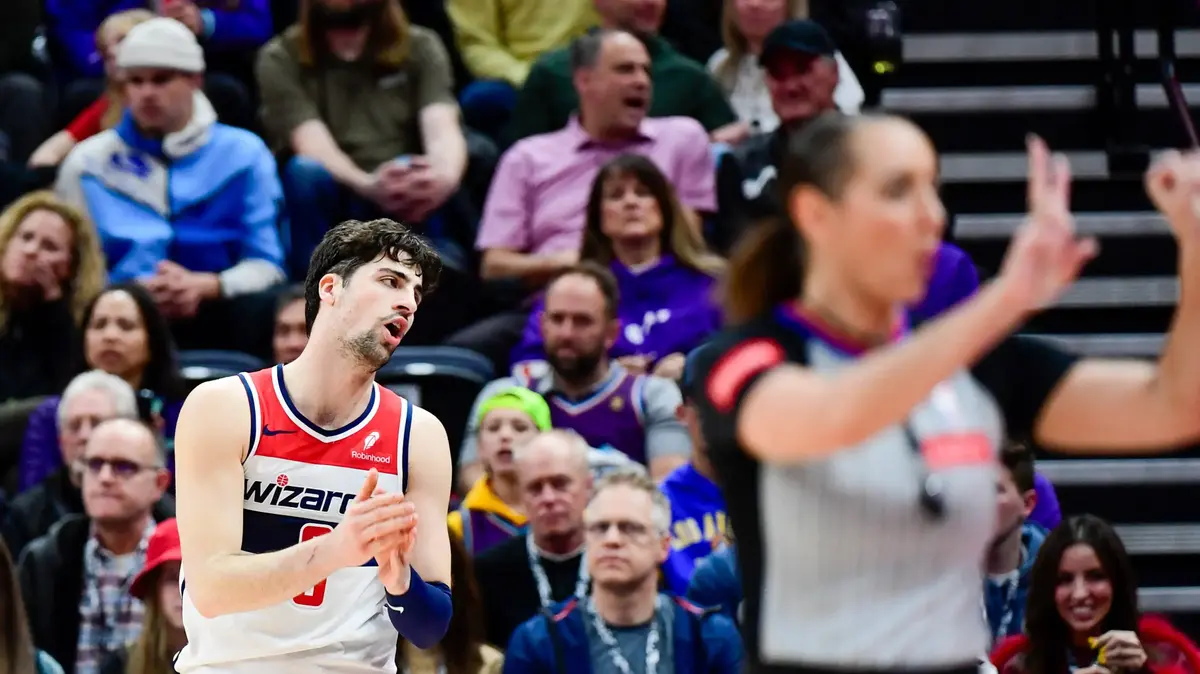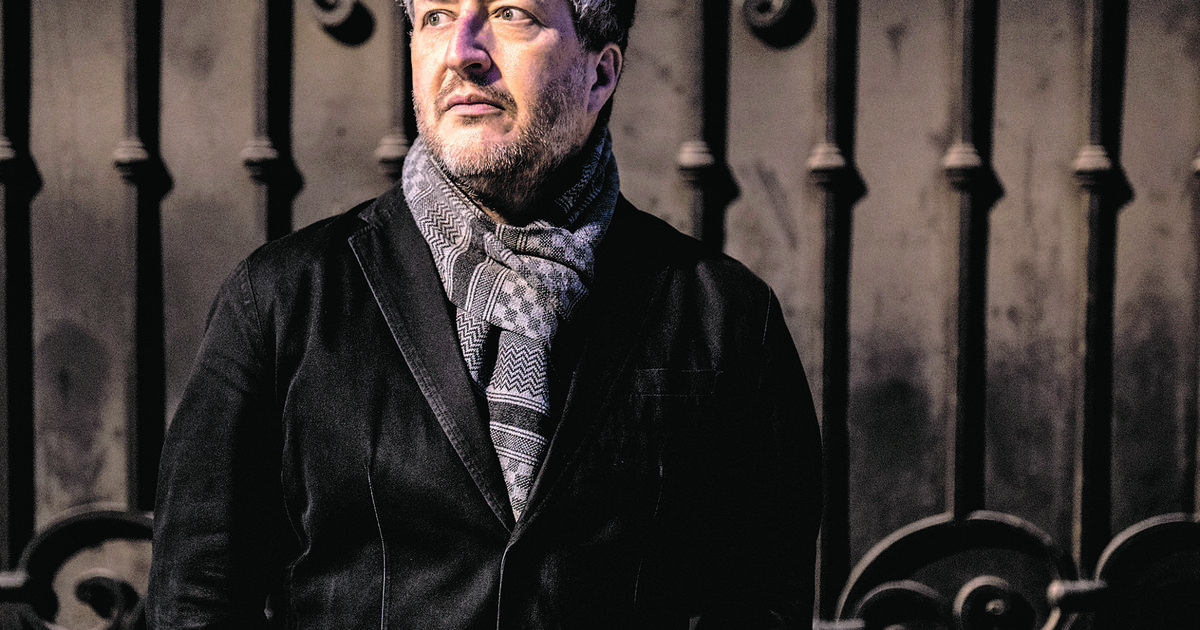The news has barely been commented on, not even among the stubborn haters or those who kill the hours with tweets and jokes.
Phil Collins, arguably the richest and most famous drummer in pop history, is retiring.
Actually, the drumsticks had to be put aside almost a decade ago, affected by that disease so characteristic in the guild that is tinnitus, the appearance of an intermittent and maddening buzz in hearing.
But on March 26, at the 02 Arena in London and coinciding with the last concert of the Genesis reunion tour, baptized as
The Last Domino?,
made it clear that he would never step on the boards again.
“Today is the last leg of the tour and the last concert for Genesis.
From this moment on, we will have to look for a real job, ”he noted, using unequivocal English humor to spice up the melancholy.
More information
Phil Collins confesses that he no longer has the strength to hold the drumsticks due to a health problem
Philip David Charles Collins (71 years old in January) is nothing older by the standards of the most iconic, seminal and unrepeatable generation of British rock, with Paul McCartney facing octogenarian status in June, Ray Davies (The Kinks) close to 78, Pete Townshend and Roger Daltrey (The Who) over 75 and Robert Plant, of Led Zeppelin, anchored in 73. But health was never the best ally of Collins, who had to face the entire tour of
The Last Domino?
sitting in a chair and with a sore expression also due to a serious spinal injury that has limited his mobility for years.
If we add to this that his extremely timid return as a solo musician (an album of Motown versions entitled
Going Back
) dates back to 2010, it seems clear that this man's artistic career has come to an end.
And that his withdrawal takes place almost on tiptoe, without solemnities or official announcements.
The low media intensity of this farewell draws even more attention if we notice that Collins, between his own albums and with his bands (Genesis, of course, but also Brand X), adds up to the enormity of 150 million records sold.
It is a merit to which, in the numerical part, we can add 11 number ones, eight Grammy awards, half a dozen Brits, an Oscar and milestones such as becoming the only artist in the world who on July 13, 1985 was able to participate in the
Live Aid
both at Wembley and from Philadelphia (at home, as a solo artist; across the pond, joining Eric Clapton, Led Zeppelin or Madonna).
But the curious thing is that Phil Collins will go down in the annals as one of the most famous musicians in history against all logic, because his original condition as a drummer completely removed him from the spotlight and his relationship with fame was always openly suspicious. .
Nothing would allow us to imagine that the embryo of a megastar lived in Collins.
We are talking about a withdrawn and unphotogenic man, a singer by accident and a very late composer.
And yet, the history of pop music in the seventies and, above all, in the eighties cannot be explained without him.
Phil Collins (right), with his Genesis teammates Mike Rutherford (left) and Tony Banks (center) in March 2020. Frank Augstein (AP)
Raised in the London suburbs of Hounslow, to the west of the great metropolis, Collins was an archetypal child of the working class in the middle of the war.
So on the day in September 1970 that he responded to an advertisement in
Melody Maker magazine
in which manager Tony Stratton-Smith claimed "a drummer with a sensibility for acoustic music," he was stunned to discover that the audition was taking place in a villa with a private pool.
It was the family home of Peter Gabriel, then singer of Genesis, through which up to 15 candidates for the position would parade, but both Gabriel and his squires –guitarist Mike Rutherford and keyboardist Tony Banks– were clear that that amateur actor and musician of the short-lived band Flaming Youth was the only one capable of adapting to the rhythmic labyrinths of progressive rock.
That was a happy confluence for the young drummer, but also for a band with airs that had failed miserably on their first two albums.
And for which up to three quite mediocre batteries had already paraded;
among them, the peerless Chris Stewart, who three decades later, settled in the Alpujarras of Granada, would recount his experiences in an adorable literary self-portrait entitled
Entre limones
.
The success of the man called to succeed against all logic began to take hold in 1975 after the abrupt abandonment of Gabriel as head of Genesis.
No one thought of Collins as a substitute, not even himself.
And only after receiving more than 300 proposals and carrying out fifty tests (including Nick Lowe or Mick Rogers, by Manfred Mann), was the option of Phil David Charles considered as a "provisional solution".
The result of
A Trick of the Tail
(1976), the first work without the charismatic predecessor leader, was amazing.
No one summed it up better than Stratton-Smith: "Phil sounded more like Peter Gabriel than Peter Gabriel himself."
All things considered, Collins' rise was always a product of meritocracy.
He came from nowhere to join an ambitious group without the intermediary of any sponsor.
He took over the singing voice when he had only stepped in front of the microphone in a couple of occasional pieces,
For Absent Friends
(1971) and
More Fool Me
(1973).
And he played a testimonial role as a composer until, as a result of his divorce from Andrea Bertorelli (1980), he began to bleed from the wound with songs of a very high emotional octane, which ended up integrating his premiere in the first person:
Face Value
, from 1981 There, on that personal and desolate album that was going to have been titled
Exposure
or
Interiors
, was
In The Air Tonight
.
And that song revolutionized all parameters.
The metallic and bulky sound of the drums, that
brand of the house
that has been admired, parodied and, ultimately, vilified, was not just Collins' idea.
Much of the blame must also be attributed to engineer and producer Hugh Padgham, who already patented that punch on the occasion of Peter Gabriel's third solo album (1980), in which Collins left the unmistakable mark of his drumsticks for
Intruder
.
It was an immense discovery: the general public had never experienced that sensation of distinguishing a percussionist from the first hit.
Phil Collins, when he played drums in Genesis.
Since that 1981, Phil Collins has already found it impossible to go unnoticed;
neither as a singer nor as an author nor as an instrumentalist.
The Catalan band Love of Lesbian, always a lover of surrealist lyrics, mocked (affectionately) that ubiquity in their song
Marlene, la neighbor del Ártico
(2005), the delusional story of a somewhat crazy Ukrainian tenant who thinks she is the drummer himself of Genesis.
“I was a very freakish fan of the band, even if it didn't correspond to me because of my age”, confesses Santi Balmes, leader and composer of the group.
“I liked the records from the Gabriel era better and it was hard for me to understand that Collins would sing, but he is a magnificent songwriter, undeniably.
And albums like
Duke
[1980] or
Genesis
[1983] also ended up enchanting me.”
Balmes assumes that this "certain mania" that a part of the public developed towards Phil Collins comes from his "overexposure" in the glory years, but insists that, beyond
Marlene
's joke , he deserves "all respect" and the admiration for discoveries such as the version of
You Can't Hurry Love
, an old Supremes classic that he rescued and made immensely popular in 1982. The obsession that his figure awakens in Patrick Bateman bears witness to the omnipresence of Collins in those times, the serial killer protagonist of
American Psycho
(1991), the disturbing novel by Bret Easton Ellis.
Collins' ascendancy would fade after
Both Sides
(1993), a long, flimsy and boring album, while the accumulation of high-sugar ballads, notably
You'll Be In My Heart
(for the
Tarzan
Disney, in 1999), provided ammunition to the detractors.
But Collins has also left his mark on a superb progressive jazz lineup, Brand X, and his overwhelming side as producer and collaborator includes names like Eric Clapton, Robert Fripp, Brian Eno, Robert Plant, Al Di Meola, Paul McCartney, Tears for Fears, David Crosby, John Martyn, Philip Bailey or Howard Jones.
Even as an actor he wasn't too bad at it, and even that stage facet would end up transferring to phonograms as well: let's remember the histrionic laughter that serves as a pattern in the superb
Mama
(1983), one of the most broadcast titles of Genesis.
Despite everything, there are still those who think that the only authentic and genuine Genesis are those of Peter Gabriel.
They were indeed fabulous, influential, quintessential.
But not to think that Gabriel and Collins are old enemies corroded by envy.
The endearing selfie that Pete and Philip took in the dressing rooms of the 02 Arena, on the already historic March 26, 2022, shows that there are still very serious reasons to continue loving Collins.
Exclusive content for subscribers
read without limits
subscribe
I'm already a subscriber



/cloudfront-eu-central-1.images.arcpublishing.com/prisa/H5Z5ZUJV4SHDT5CWNW6KEDDBV4.jpg)
/cloudfront-eu-central-1.images.arcpublishing.com/prisa/H2U67J3DUNAJ7PTX2UNLIVIPEM.jpg)




/cloudfront-eu-central-1.images.arcpublishing.com/prisa/RCG5X3THKFDNBE5JDXQVKMDMQQ.jpg)





